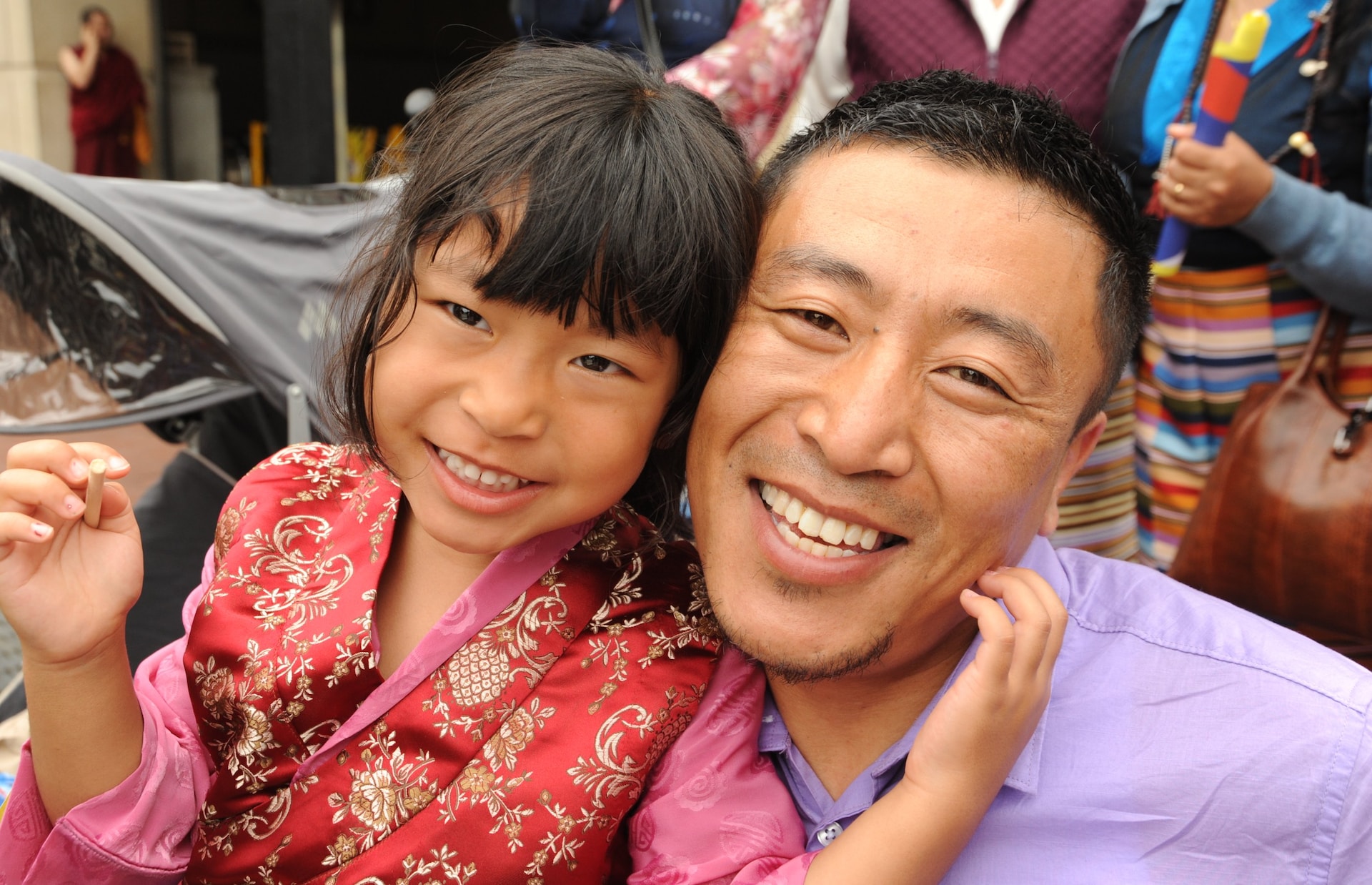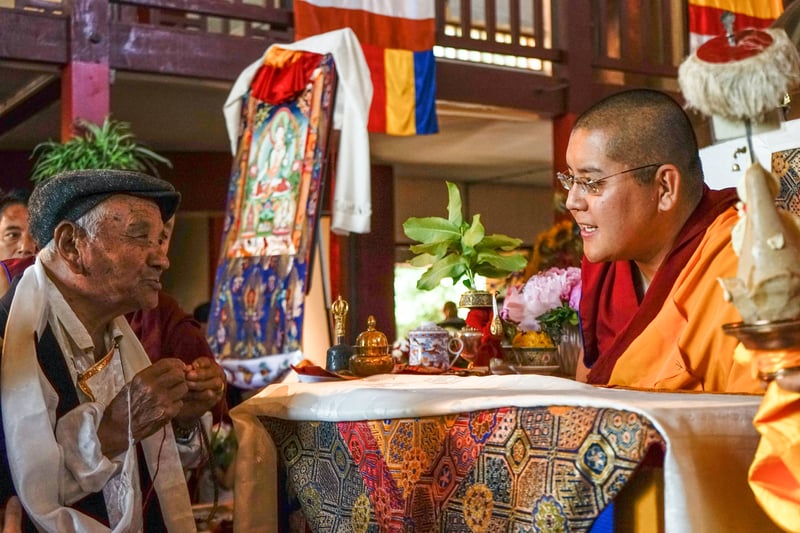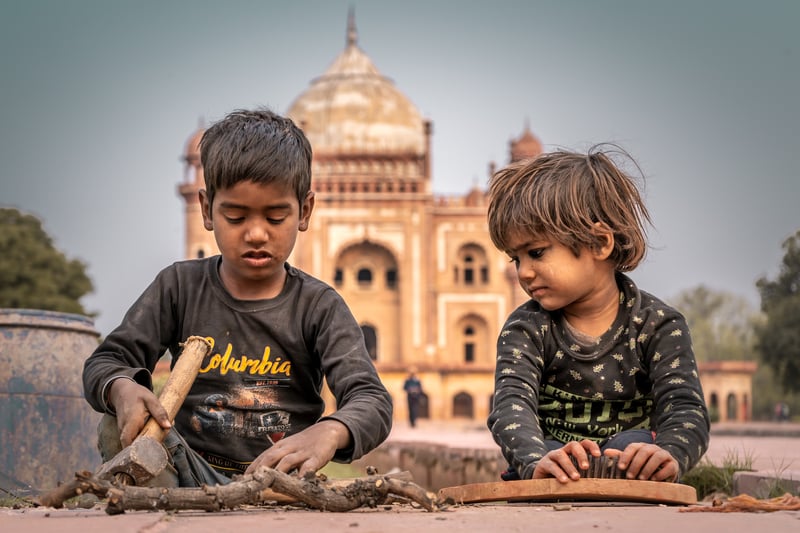
Global citizenship is defined by the United Nations as:
The umbrella term for social, political, environmental and economic actions of globally-minded individuals and communities on a worldwide scale
Here we'll explore the concept of global citizenship, its importance in supporting justice and equality for all people, and its many other benefits worldwide. We'll also delve into the challenges faced by global citizens and provide practical ways to make a difference in the world. In addition, we'll discuss how we can instill the values of global citizenship in children through world schooling to ensure a brighter future for generations to come.
Global Citizenship
.jpg?width=800&height=533&name=Tribal%20women%20from%20Nabia%20with%20a%20sowing%20machine%20and%20fabrics%20(2).jpg)
Global citizenship is a profound understanding of humanity that transcends national, cultural, and religious boundaries. It entails recognizing our interconnectedness with all people and accepting the responsibility to safeguard the well-being of our planet and fellow human beings.
By embracing global citizenship and the international community, we acknowledge that our actions, no matter how small, have far-reaching effects on people worldwide. It is a call to action to cultivate empathy, respect and collaboration, aiming for a fair, compassionate and inclusive world.
Oxfam, the global organization on a mission to end poverty, identifies a global citizen as
Someone who is aware of and understands the wider world – and their place in it. They are a citizen of the world. They take an active role in their community and work with others to make our planet more peaceful, sustainable and fairer.
One of the best ways to attain global citizenship is to travel the world in a conscious effort to learn about other nations and cultures whenever and wherever possible. (There's a reason why so many digital nomads consider themselves citizens of the world— because they see a lot of it!) The more exposure you have to things outside your zone of experience, the more well-rounded you become.
The Importance of Global Citizenship

Global citizenship is crucial to fostering a more just and equitable world. When we travel, we can more fully grasp the interdependencies of our global community and as a result, learn how to accept and value diverse cultures.
Additionally, global citizens possess a deeper understanding of the world and their place in it, enabling them to make increasingly informed decisions in their own lives and contribute more positively to society as a whole. You may have heard people describe how world travel “opens your eyes”— that broadening world view aligns directly with becoming a global citizen and fuels greater cross-societal cooperation in an interdependent world.
The Benefits (and Challenges) of Global Citizenship
Benefits

Embracing global citizenship brings numerous benefits to individuals and communities alike:
Enhanced Empathy
Global citizenship allows us to understand and connect with people from different cultures. This heightened empathy leads to stronger relationships, promotes understanding of cultural diversity, and contributes to a more peaceful world.
Sense of Purpose
Global citizens possess a greater sense of purpose knowing their actions make a difference worldwide, which in turn brings profound satisfaction and fulfillment to their own lives.
Global Learning
Global citizenship education allows you to learn about the world firsthand. Such education will serve you well in life, both personally and professionally. As more of us can now work and learn from anywhere in the world, many families choose this form of experiential learning for their children’s education, although lifelong learning is not limited to youth.
Realignment of Values
Becoming a citizen of the world means traveling to unfamiliar places and observing in person how others live. Such travel by its very nature prompts you to re-examine your values and priorities and can help you connect with your higher self.
Global Community
Global citizenship also means being part of a worldwide community. By becoming a global citizen, you are expanding your “tribe” to be not just your family, city, or country, but the entire world.
Challenges

While the path of global citizenship is rewarding, it is not without its challenges. Many factors impact global citizens.
Prejudice and discrimination
Prejudice and discrimination can arise from those who fail to comprehend or appreciate globally-minded values. Nevertheless, by fostering open dialogue, promoting understanding, and leading by example, we can gradually overcome these challenges and promote international agreements on inclusivity.
Feeling overwhelmed
Feeling overwhelmed is another obstacle faced by global citizens. The magnitude of global problems can sometimes seem insurmountable. Still, it's essential to remember that even small actions can make a profound impact over time. Focusing on one cause at a time and collaborating with others can create a ripple effect that brings about meaningful change.
Language barriers
Language barriers can be frustrating when trying to explore new places and cultures. In recent years, this has become increasingly easier with new (and often free) technological resources such as Google Translate. Even if you don’t get the words 100% right, people will often appreciate just seeing the effort you’re putting in to communicate and connect with them.
Personal safety
Personal safety is a valid concern for anyone when traveling, especially to places where the laws and customs can vary so greatly from one’s own. It’s important to learn as much as you can about local norms, stay vigilant, and always approach any situation with an attitude of openness and respect.
How to Make a Difference Through Being a Global Citizen

There are countless ways to make a difference in the world and embrace the spirit of global citizenship:
- Volunteering remains a powerful force for change, allowing us to actively contribute to causes that resonate with us.
- Donating to charities provides crucial support to organizations working tirelessly to address global challenges.
- Signing petitions is another impactful way to advocate for change. By lending our voice to a global citizens campaign we care about, we amplify collective concerns and prompt policymakers to take action.
- Engaging in conversations with friends and family about global issues raises awareness and encourages others to participate, fostering a community dedicated to positive change.
- Supporting local communities while traveling is an excellent way to not only make a positive impact on their economies but to enrich your own experience as you connect with other cultures in a more engaging way.
- Practicing sustainable travel and responsible tourism is a wonderful way to care for our environment and fellow humans around the world.
- Promoting human rights is an important path to own global citizenship by focusing on issues in different countries, particularly with respect to political borders and social justice.
Teaching Global Citizenship to Children
.jpg?width=800&height=533&name=Volounteer%20teacher%20teaching%20a%20class%20of%20children%20the%20idea%20of%20being%20citizens%20of%20the%20world%20(1).jpg)
Instilling global citizenship education in children is essential for creating a better future. Reading books introducing different cultures and international issues, watching movies promoting empathy and understanding, and playing educational games encouraging inclusivity can all contribute to global awareness.
These are all common practices in worldschooling, a rising trend whereby parents and kids travel around the world and learn along the way. Students learn about their subjects firsthand, such as studying ancient Greece via a guided tour of the Pantheon instead of from inside a textbook.
World schooling lays an essential foundation for students to grow as global citizens, fostering a deeper understanding of different cultures and gaining multiple perspectives of the whole world. For those who do not world-school, there are still several ways in which to instill a global citizenship outlook in your children:
- Engage children in discussions about global issues and social responsibility
- Encourage their curiosity and allow them to explore various perspectives
- Provide age-appropriate information on global perspectives and human rights education
- Teach them global citizenship skills such as small acts of kindness and community service
- Nurture their understanding of their place in the world and the positive impact they can have
- Refer to the Global Citizenship Education UNESCO for excellent teaching resources.
Going Global

Becoming a global citizen is a transformative journey that empowers us to recognize our interconnectedness and take responsibility for our shared world by cultivating empathy, understanding and tolerance. While challenges may arise, our collective efforts, from sustainable development to global education and human rights, can make a significant difference. Together, we can inspire and enact positive change, leaving a lasting legacy for future generations.
Storylines
Storylines is a luxury lifestyle ship with a community of expats and other globally-conscious citizens who seek unique experiences, cultural events and community participation as they travel the world together. Click here to find out more about Storylines’ values and how we create an entire lifestyle around global citizenship


